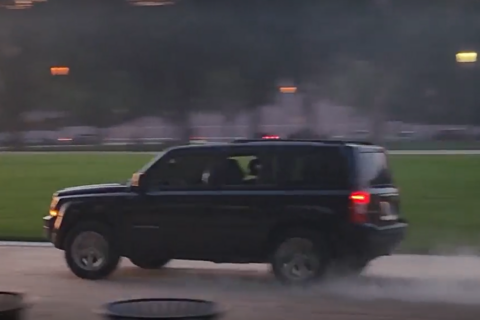D.C. police have started enforcing the city’s summer youth curfew as part of a plan to curb violence and keep communities safe.
The summer juvenile curfew started July 1 and runs through August 31, beginning at 12:01 a.m. and ending at 6 a.m. It is in effect seven days a week.
The curfew isn’t new, according to patrol operations chief Andre Wright, because the city does use a curfew from September through June. That curfew has different hours for weekdays and weekends.
“Our intention behind it is to make sure, first and foremost, that we’re keeping them safe,” Wright said. “Sometimes, we’re keeping them safe from themselves. Oftentimes, we’re keeping them safe from others who will prey upon them.”
Since enforcement of the curfew pilot program began in September, D.C. police have transferred 71 youths to the city’s Department of Youth and Rehabilitation Services (DYRS) for violating the juvenile curfew, according to city data.
The curfew applies to those under 17, including minors who don’t live in D.C. While it’s in effect, they can’t be in a public place such as a street, the common area of an apartment building, on Metro or in a movie theater, Wright said.
“We’re not just focusing on any child in any specific neighborhood,” Wright said. “It’s the law.”
D.C. police detain violators and then transfer them to DYRS. Then, Wright said, the agency will work with parents to get the child picked up and learn “if there’s any other additional issues that are going on with that child or in the home.”
“Our sister agencies work to try to triage that and assess where they can,” he told WTOP.
Minors are exempt from the curfew if they have a parent or guardian with them, if they’re running an errand for a parent, if they’re standing on a sidewalk near their home or if they’re attending an official school, religious or recreational activity, according to the curfew’s rules.
Officers, Wright said, are trained and “have a responsibility to identify juveniles out past the curfew.”
“We know that getting them off the street, when we do that, reduces the risk of becoming a victim of getting involved in violent crime,” Wright said.
He added that the curfew isn’t always tied to crime. Sometimes, during the winter months, officers find young people sleeping in cold weather because they’re unhoused or who “don’t want to go home because of some issues going on in the home.”
“And we’ve been able to locate several children like that are in desperate need of care,” Wright said.
A parent who “knowingly permits or by insufficient control allows” a minor to break the curfew law may be fined up to $500 or required to do community service. Minors who break the curfew may similarly be required to do up to 25 hours of community service.
Get breaking news and daily headlines delivered to your email inbox by signing up here.
© 2024 WTOP. All Rights Reserved. This website is not intended for users located within the European Economic Area.







